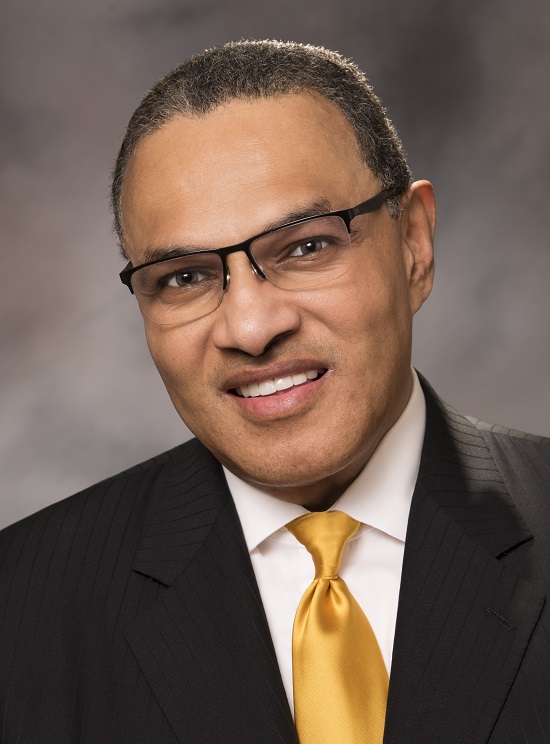
He became a champion for me, my work, and the university.
Freeman Hrabowski III
President, University of Maryland, Baltimore County
Baltimore, MD
Someone who inspired me at a young age—twelve years old—was Dr. Martin Luther King Jr. I was sitting in the back of a church in Birmingham, Alabama, listening to Dr. King speak, and was inspired to become a child leader in the civil rights movement. I was able to envision a world that could be different because of what Dr. King said: “The world tomorrow can be much better than the world today, but it’s up to you to make that difference.”
Before I heard those words, I assumed we’d always get the hand-me-down books from the White schools, and I assumed I’d always be going in the back doors, and face all the other ugliness of that period. But hearing him say we could make America better and that we could be empowered, even as children, was so powerful. And that’s why when I talk to my students today, I tell them we don’t have time to be victims. We’ve got to address the issues at-hand and feel empowered to change them.
Someone who helps me feel empowered in my career is Robert Meyerhoff, whom I met more than 30 years ago when I was vice provost at UMBC. At that time, I needed to figure out how to help more students of color succeed in science, and I was trying to find money to help me tackle that challenge.
Bob, a businessman and philanthropist, had shared at a dinner party that he was interested in helping Black males succeed in education and in their careers, but he didn’t know how to go about doing it. He believed that if Black children had the opportunities that privileged White children had to succeed, they would. Robert Embry, President of the Abell Foundation, heard his comments and later introduced me to him. When I met Bob, he asked me to “bring a short proposal to the next meeting on what it would take” to help me solve my challenge at UMBC. So, at our second meeting, I gave him a two-page proposal asking for an amount of money I thought I’d never get, but if I got a small part of it, that would be great. I asked for half a million dollars, and he said, “You’ve got the money.” Since then, he’s given much more, and today the UMBC Meyerhoff Program leads the country in producing Black bachelor’s degree recipients who earn MD/PhDs.
Bob is 96 today, and we’re still as close as ever. That first meeting led to deep, substantive interactions over the course of 30 years about the challenges we face involving race and public education, fundraising, leadership, the importance of emotional intelligence, and the importance of asking for help and guidance on getting in the door. The lessons that he’s taught me over these years have made all the difference because he became a champion for me, my work, and the university. I say a champion rather than a mentor because a mentor will give you advice, but a champion will knock down doors for you. In higher education, we’ve got to get more champions.
Freeman Hrabowski III is President of the University of Maryland, Baltimore County (UMBC). In 2012, President Barack Obama appointed Hrabowski to Chair the newly created President’s Advisory Commission on Educational Excellence for African Americans. In 2011, he received the Carnegie Corporation of New York’s Academic Leadership Award that included a $500,000 grant, which he directed to support and promote a culture of innovation, entrepreneurship, and student success at UMBC.

